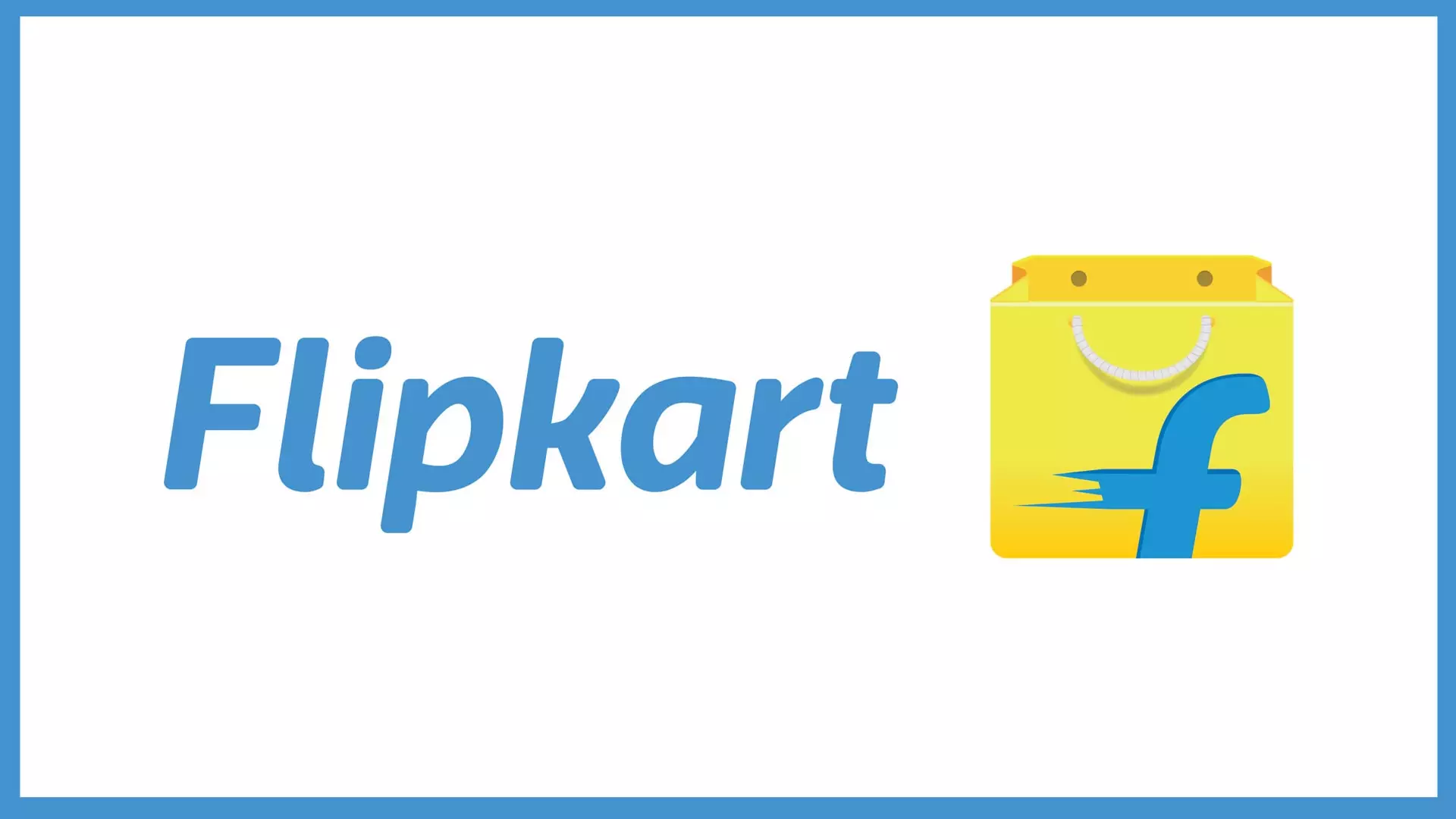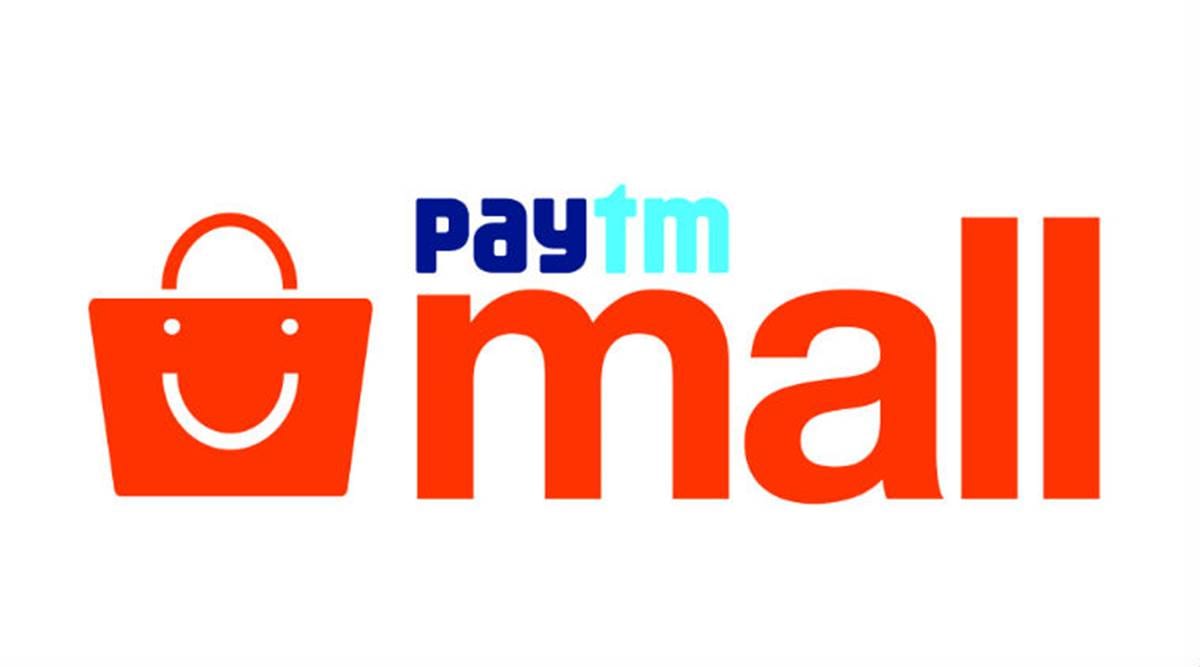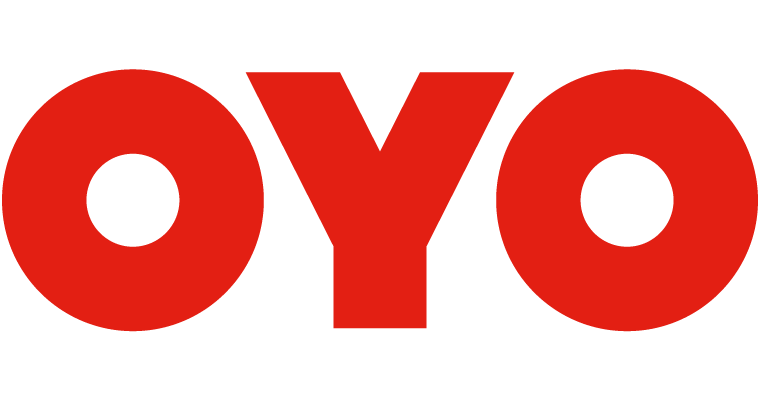Top 10 Best Marketplace Companies in India 2023

Marketplace companies are platforms that facilitate transactions between buyers and sellers, typically operating in an online environment. These companies create a marketplace where individuals or businesses can buy and sell products or services. Marketplace companies provide a platform that connects buyers and sellers, often offering features such as search and discovery, payment processing, user ratings and reviews, and dispute resolution mechanisms.
Marketplace companies can operate in various industries and sectors, including e-commerce, sharing economy, freelance services, travel and accommodation, and more. Some well-known examples of marketplace companies include:
Amazon: A leading e-commerce marketplace where sellers can list and sell their products to a wide range of buyers.
Airbnb: A platform that allows individuals to list and book accommodations, connecting hosts and travelers.
Uber: A ride-hailing platform that connects passengers with drivers, enabling convenient and on-demand transportation services.
Etsy: An online marketplace focused on handmade and vintage products, providing a platform for independent sellers.
Upwork: A freelancing platform where businesses can hire and work with freelancers across various fields, including design, writing, programming, and more.
eBay: An online auction and shopping platform where individuals and businesses can buy and sell a wide range of products.
TaskRabbit: A platform that connects people in need of various services, such as cleaning, moving, or handyman tasks, with local service providers.
Booking.com: A travel marketplace that allows users to search and book accommodations, flights, and other travel-related services.
Why Marketplace Companies are important

Marketplace companies play a crucial role in the modern economy for several reasons:
Increased Access and Choice: Marketplace companies provide a platform where buyers can access a wide range of products or services from multiple sellers. They break down geographical barriers and enable users to discover and purchase goods or services from sellers they may not have been able to access otherwise. This increased access and choice benefit both buyers and sellers, expanding market opportunities for all parties involved.
Efficiency and Convenience: Marketplace platforms streamline the buying and selling process, making transactions more efficient and convenient for both buyers and sellers. These platforms often offer user-friendly interfaces, search functionalities, secure payment systems, and customer support, making it easier for users to find, compare, and purchase products or services. Sellers benefit from ready-made infrastructure and exposure to a large customer base, while buyers enjoy a simplified shopping experience.
Trust and Safety: Marketplace companies establish trust and safety mechanisms to protect both buyers and sellers. They often implement user verification, ratings and reviews, dispute resolution systems, and secure payment gateways, which help build trust and credibility within the marketplace. These measures reduce the risks associated with online transactions, fostering confidence among participants and encouraging more transactions.
Market Expansion for Small Businesses: Marketplace platforms offer opportunities for small businesses and individual sellers to reach a broader customer base. They provide a level playing field where sellers can showcase their products or services alongside larger competitors. By reducing barriers to entry and offering exposure to a wider audience, marketplace companies enable small businesses to compete and grow their customer base without the need for significant infrastructure or marketing investments.
Innovation and Entrepreneurship: Marketplace platforms foster innovation and entrepreneurship by enabling individuals and businesses to monetize their skills, assets, or products. They provide a low-cost and accessible platform for entrepreneurs to launch new ventures or test market demand. This fosters a culture of innovation and encourages the growth of new ideas and business models.
Economic Growth and Job Creation: Marketplace companies contribute to economic growth by facilitating transactions, generating revenue, and creating job opportunities. They support not only the sellers on their platforms but also the ancillary industries that provide services such as packaging, logistics, customer support, and marketing. Marketplace platforms have the potential to stimulate economic activity, increase employment, and contribute to overall economic development.
History of Marketplace Companies in India
The history of marketplace companies in India dates back to the early 2000s when e-commerce started gaining traction in the country. Here’s a brief overview of the history of marketplace companies in India:
Early Years (2000s):
In the early 2000s, online retail in India was primarily dominated by inventory-based e-commerce models, where companies owned and stocked the products they sold. However, marketplace models started emerging as a viable alternative, allowing third-party sellers to list and sell their products on a platform.
One of the pioneering marketplace companies in India was eBay, which launched its Indian operations in 2004. eBay facilitated person-to-person online auctions and sales, connecting buyers and sellers across the country.
Emergence and Growth (2010s):
The marketplace model gained significant momentum in India during the 2010s. Several homegrown and international companies emerged, establishing themselves as marketplace leaders.
In 2007, Flipkart was founded as an online bookstore, later evolving into a multi-category e-commerce marketplace. Flipkart played a pivotal role in popularizing the marketplace model in India, offering a wide range of products and attracting a large customer base.
Snapdeal, founded in 2010, also emerged as a major player in the Indian e-commerce scene. It started as a daily deals platform and eventually transitioned into a full-fledged online marketplace.
The entry of Amazon in India in 2013 further accelerated the growth of marketplace companies. Amazon introduced its marketplace model in the country, enabling third-party sellers to reach Indian customers. Amazon’s vast product selection, customer-centric approach, and robust logistics infrastructure contributed to the expansion of the marketplace ecosystem.
Other notable marketplace companies that emerged during this period include ShopClues, Paytm Mall, and Craftsvilla, each catering to specific product categories or consumer segments.
Diversification and Vertical Expansion (Late 2010s and Beyond):
In recent years, marketplace companies in India have expanded their offerings beyond traditional retail. They ventured into new sectors such as food delivery, online travel, beauty and wellness services, and more.
For instance, companies like Swiggy and Zomato emerged as dominant players in the online food delivery space, connecting customers with restaurants and delivery partners.
OYO, an Indian hospitality company, established a marketplace model for budget accommodations, enabling small hoteliers and homeowners to list and offer their properties to travelers.
Vertical-specific marketplaces like UrbanClap (now Urban Company) and Practo emerged, connecting consumers with local service providers for various professional services.
The rise of mobile internet and the rapid adoption of smartphones further fueled the growth of marketplace companies, as they provided convenient access to a wide range of products and services through mobile apps.
Today, marketplace companies continue to thrive in India, with established players like Flipkart, Amazon, and Snapdeal, as well as emerging startups and niche marketplaces catering to specific industries and consumer demands.
The history of marketplace companies in India reflects the evolution of the e-commerce landscape in the country, showcasing the growing importance and impact of online marketplaces in shaping consumer behavior and the economy.
Benefits Marketplace Companies

Marketplace companies offer several benefits to both buyers and sellers participating in their platforms. Here are some key benefits:
Benefits for Buyers:
Wide Product Selection: Marketplace companies provide buyers with access to a wide range of products from various sellers. Buyers can explore and choose from a diverse selection of products across different categories, allowing them to find the specific items they need.
Competitive Pricing: The presence of multiple sellers on marketplace platforms fosters competition, leading to competitive pricing. Buyers can compare prices offered by different sellers and choose the best deal, potentially saving money on their purchases.
Convenience and Efficiency: Marketplace platforms offer convenience and efficiency in the shopping process. Buyers can browse, search, and purchase products from the comfort of their homes, without the need to visit multiple physical stores. Additionally, features like customer reviews, ratings, and detailed product descriptions help buyers make informed purchasing decisions.
Secure Transactions: Marketplace companies often implement secure payment systems and buyer protection measures to ensure safe transactions. Buyers can make payments through trusted payment gateways and have recourse in case of any issues or disputes, enhancing the trust and confidence in the platform.
Best Marketplace Companies in India

Flipkart
Amazon India
Snapdeal
Paytm Mall
Myntra
BigBasket
Grofers
UrbanClap (now Urban Company)
OYO
MakeMyTrip
Flipkart

Flipkart is one of the largest and most well-known e-commerce marketplace companies in India. It was founded in 2007 by Sachin Bansal and Binny Bansal, and it has played a pivotal role in revolutionizing the Indian e-commerce landscape.
Flipkart started as an online bookstore and gradually expanded its offerings to include a wide range of products across categories such as electronics, fashion, home goods, beauty, and more. The company quickly gained popularity by providing customers with a convenient and reliable platform for online shopping.
The marketplace model of Flipkart allows third-party sellers to list and sell their products on the platform, offering customers an extensive selection of products from various sellers. Flipkart has established partnerships with numerous Indian and international brands, making their products accessible to customers across the country.
Flipkart has introduced several innovative features and services to enhance the shopping experience. It introduced cash-on-delivery as a payment option, which helped build trust among customers who were hesitant to make online payments. Flipkart also pioneered the concept of flash sales and exclusive product launches, generating excitement and demand among customers.
The company has expanded its operations and services over the years. It launched its own logistics arm, Ekart, to improve delivery efficiency and control the end-to-end supply chain. Flipkart has also introduced initiatives like Flipkart Plus, a loyalty program that offers benefits to frequent shoppers, and SuperCoins, a rewards program that enables customers to earn and redeem points on the platform.
In 2018, Flipkart made headlines when it was acquired by Walmart, a major global retail corporation. This acquisition has further strengthened Flipkart’s position in the Indian market and facilitated its growth and expansion.
Today, Flipkart continues to be a dominant player in the Indian e-commerce industry, providing a vast range of products, competitive pricing, and reliable services to millions of customers. It has become a household name in India and remains at the forefront of the country’s thriving e-commerce ecosystem.
Amazon India

Amazon India is the Indian arm of Amazon, the global e-commerce behemoth. Launched in 2013, Amazon India quickly became one of the leading marketplace companies in the country, revolutionizing online shopping for Indian customers.
Amazon India offers a vast selection of products across multiple categories, including electronics, fashion, home goods, books, beauty, and more. The platform operates on a marketplace model, allowing third-party sellers to list and sell their products alongside Amazon’s own inventory. This expansive product range and availability have contributed to the platform’s popularity.
Amazon India has focused on enhancing the customer experience by introducing various features and services. It offers a user-friendly website and mobile app, allowing customers to easily search, browse, and purchase products. The platform provides detailed product descriptions, customer reviews, and ratings to assist buyers in making informed purchase decisions.
The company has introduced initiatives like Amazon Prime, a subscription-based service that offers benefits such as free and faster shipping, access to streaming services, exclusive deals, and more. Amazon Prime has garnered a substantial subscriber base in India, offering additional value to customers and encouraging loyalty.
Amazon India has also made efforts to improve delivery and logistics infrastructure. It has built a robust network of fulfillment centers and delivery partners to ensure timely and efficient order fulfillment. The platform introduced initiatives like Amazon Easy and Amazon Pantry to cater to customers in remote areas and provide essential goods conveniently.
Furthermore, Amazon India has expanded its presence beyond e-commerce. It has ventured into additional services like Amazon Pay, a digital wallet and payment solution, and Amazon Prime Video, a streaming platform offering a wide range of movies and TV shows. These services further integrate Amazon into the daily lives of customers, providing a comprehensive ecosystem.
Amazon India’s commitment to customer-centricity, competitive pricing, and extensive product range has allowed it to become one of the most trusted and dominant players in the Indian e-commerce market. The platform has significantly influenced the way Indians shop online, offering convenience, reliability, and access to a wide range of products and services.
Snapdeal

Snapdeal is an e-commerce marketplace company based in India. Founded in 2010 by Kunal Bahl and Rohit Bansal, Snapdeal has been a significant player in the Indian e-commerce industry.
Snapdeal started as a deals platform, offering daily deals and discounts on various products and services. Over time, it transitioned into a full-fledged online marketplace, providing a wide range of products across categories such as electronics, fashion, home goods, beauty, and more.
The platform operates on a marketplace model, connecting buyers with sellers from across the country. Snapdeal enables sellers to list their products and reach a wide customer base. It offers features such as product ratings, reviews, and detailed descriptions to assist buyers in making informed purchase decisions.
Snapdeal gained popularity by focusing on affordability and value. It offered competitive pricing and attractive deals, making it a preferred choice for budget-conscious customers. The platform introduced features like “Deal of the Day” and “Snapdeal Gold” (providing benefits like free shipping and extended return periods) to enhance the shopping experience for customers.
Snapdeal also developed partnerships with various brands, enabling sellers to offer a broad range of products from both established and emerging brands. This helped create a diverse product selection for customers.
The company’s commitment to customer satisfaction includes providing reliable customer support and robust logistics infrastructure. Snapdeal collaborates with logistics partners to ensure efficient order delivery and offers a hassle-free returns policy for customer convenience.
Over the years, Snapdeal has weathered challenges and undergone transformations in response to market dynamics. The company has emphasized customer feedback, seller support, and operational efficiency to enhance its marketplace ecosystem.
Snapdeal’s focus on affordability, a wide product range, and seller empowerment has contributed to its position as one of the significant players in the Indian e-commerce landscape. It continues to serve a diverse customer base, catering to their varied shopping needs with competitive pricing and a seamless marketplace experience.
Paytm Mall

Paytm Mall is an e-commerce marketplace platform in India. It is operated by Paytm, a prominent Indian digital payments and financial services company. Paytm Mall was launched in 2017 as a separate entity from the Paytm digital wallet and payments platform, with a specific focus on e-commerce and online shopping.
Paytm Mall operates on a marketplace model, connecting buyers and sellers on its platform. It offers a wide range of products across categories such as electronics, fashion, home goods, appliances, and more. The platform aims to provide a convenient and secure shopping experience for customers.
One of the unique aspects of Paytm Mall is its integration with the Paytm digital wallet. Customers can make purchases using their Paytm wallet balance, offering a seamless and cashless transaction experience. Paytm Mall also accepts other payment methods like credit/debit cards, net banking, and UPI.
Paytm Mall places emphasis on quality and authenticity. It has introduced various measures to ensure product quality, including partnerships with reputed brands and authorized sellers. The platform provides detailed product descriptions, customer reviews, and ratings to help buyers make informed decisions.
In addition to regular e-commerce offerings, Paytm Mall has also ventured into grocery delivery. Through partnerships with local grocery stores, it enables customers to order essential items and have them delivered to their doorstep.
Paytm Mall strives to provide value to customers through attractive deals, discounts, and cashback offers. It frequently runs promotional campaigns and sales events, providing customers with opportunities to save money on their purchases.
The platform also supports sellers by offering them tools and services to manage their online businesses effectively. Paytm Mall provides access to a large customer base, marketing support, and logistics assistance, enabling sellers to reach a wider audience and grow their businesses.
Paytm Mall’s integration with the broader Paytm ecosystem, focus on quality and convenience, and its ability to leverage digital payment services have contributed to its presence as a significant player in the Indian e-commerce market. The platform continues to evolve and enhance its offerings, aiming to provide a seamless and rewarding shopping experience for customers.
Myntra

Myntra is a leading fashion and lifestyle e-commerce marketplace in India. Founded in 2007 by Mukesh Bansal, Ashutosh Lawania, and Vineet Saxena, Myntra started as an online retailer offering personalized gift items. Over time, it transformed into a dedicated fashion and lifestyle platform.
Myntra operates on a marketplace model, connecting buyers with sellers offering a wide range of fashion products, including clothing, footwear, accessories, and beauty products. The platform showcases products from renowned Indian and international brands, as well as emerging designers.
One of Myntra’s distinctive features is its focus on fashion and style. The platform curates collections, offers styling tips, and provides personalized recommendations based on customer preferences, helping users discover the latest trends and fashion trends.
Myntra has created a seamless and engaging shopping experience through its user-friendly website and mobile app. It provides detailed product information, high-quality images, and customer reviews to assist buyers in making informed decisions.
The platform has introduced innovative initiatives to enhance customer experience. Myntra’s “Try and Buy” feature allows customers to try selected products before making a purchase, ensuring satisfaction with the fit and style. The company also introduced augmented reality (AR) and virtual reality (VR) technologies for virtual trials, allowing users to visualize how products would look on them.
Myntra has collaborated with fashion influencers, celebrities, and designers to launch exclusive collections and collaborations, offering unique and limited-edition products to its customers.
The platform emphasizes customer satisfaction by providing reliable delivery services, easy returns, and prompt customer support. Myntra also offers additional benefits like Myntra Insider, a loyalty program that provides rewards and special privileges to frequent shoppers.
In 2014, Myntra was acquired by Flipkart, another prominent Indian e-commerce marketplace. This collaboration has further strengthened Myntra’s position in the market and facilitated its growth and expansion.
Myntra continues to be a go-to destination for fashion-conscious shoppers in India, offering an extensive range of fashion products, personalized shopping experiences, and collaborations with top brands. It has played a significant role in shaping the online fashion retail industry in India, catering to the evolving needs and preferences of fashion enthusiasts.
BigBasket

BigBasket is a leading online grocery delivery platform in India. Founded in 2011 by Hari Menon, V.S. Sudhakar, Vipul Parekh, and Abhinay Choudhari, BigBasket has revolutionized the way people shop for groceries by providing a convenient and reliable online platform.
BigBasket operates as a marketplace, connecting customers with a wide selection of groceries and household products from various sellers, including local supermarkets, farmers, and brands. The platform offers a comprehensive range of items, including fresh produce, dairy products, packaged food, personal care products, home essentials, and more.
Customers can browse through different categories, explore detailed product descriptions, and add items to their virtual shopping cart. BigBasket ensures quality and freshness by partnering with trusted sellers and implementing stringent quality control measures.
One of the key advantages of BigBasket is its ability to offer scheduled delivery slots. Customers can choose a convenient delivery time according to their preferences, ensuring that their groceries are delivered at their doorstep at the desired time.
BigBasket focuses on providing a seamless and hassle-free shopping experience. The platform offers various payment options, including cash on delivery, digital wallets, and card payments, providing flexibility for customers.
BigBasket also emphasizes sustainability by promoting eco-friendly practices. They encourage customers to use reusable bags and promote the use of paper bags instead of plastic. Additionally, they prioritize reducing food waste by optimizing inventory management and minimizing product expiration.
Over the years, BigBasket has expanded its services to cover multiple cities across India. The company has invested in its own supply chain infrastructure, including warehouses and delivery fleets, to ensure efficient operations and timely deliveries.
With the growing popularity of online grocery shopping, BigBasket has emerged as a trusted brand in the market. Its commitment to quality, convenience, and sustainable practices has made it a preferred choice for many customers looking for a reliable and efficient grocery delivery service in India.
Grofers

Grofers is a popular online grocery delivery platform in India. Founded in 2013 by Albinder Dhindsa and Saurabh Kumar, Grofers has gained prominence by providing a convenient and time-saving solution for customers to order groceries and household essentials.
Grofers operates on a marketplace model, connecting customers with local stores, supermarkets, and brands. The platform offers a wide range of products across categories such as groceries, fruits and vegetables, personal care items, home care products, and more.
Customers can browse through the Grofers website or mobile app, select their desired products, and place an order for delivery. Grofers’ user-friendly interface allows for easy navigation and provides detailed product descriptions and images to assist customers in making informed choices.
One of the key features of Grofers is its focus on affordability and competitive pricing. The platform offers discounts and deals on a wide range of products, helping customers save money on their grocery purchases.
Grofers prioritizes convenience by providing scheduled delivery slots. Customers can choose a convenient time slot for their groceries to be delivered to their doorstep. Grofers’ efficient logistics and delivery network ensure timely and reliable deliveries.
The platform has also introduced initiatives like “Smart Bachat Club” and “Grofers Cash” to provide additional benefits and rewards to loyal customers. These programs offer discounts, cashback, and exclusive deals to enhance the overall shopping experience.
Grofers has expanded its services to several cities across India, making it accessible to a larger customer base. The company has established partnerships with local stores and supermarkets, empowering small retailers and enabling them to reach a wider audience through the platform.
With its focus on affordability, convenience, and a wide range of product choices, Grofers has emerged as a popular choice for online grocery shopping in India. The platform has played a significant role in digitizing and transforming the grocery retail industry, offering customers a seamless and efficient way to fulfill their everyday shopping needs.
UrbanClap (now Urban Company)

UrbanClap, now known as Urban Company, is a leading online platform that connects customers with various local service providers. Founded in 2014 by Abhiraj Bhal, Varun Khaitan, and Raghav Chandra, UrbanClap offers a wide range of services across different categories to cater to customers’ household and personal needs.
UrbanClap operates on a marketplace model, where customers can browse and book services from a curated list of verified service professionals. The platform covers a diverse range of services, including home cleaning, beauty and wellness, appliance repairs, plumbing, electrical work, wedding planning, fitness training, and more.
Customers can access the Urban Company platform through its website or mobile app. They can explore various service categories, view service providers’ profiles and customer reviews, and book appointments at their preferred date and time.
One of the key advantages of Urban Company is its focus on quality and reliability. The platform ensures that service professionals undergo a stringent verification process to maintain high service standards. Customers can rely on Urban Company to connect them with trusted and experienced professionals who are skilled in their respective domains.
Urban Company emphasizes customer satisfaction by providing a seamless booking and service experience. The platform offers transparent pricing, where customers can view service rates upfront, eliminating any surprises or hidden charges. It also provides customer support to address any queries or concerns.
Over the years, Urban Company has expanded its services to multiple cities in India and internationally. The company has established partnerships with service professionals and businesses, empowering them with technology, marketing support, and access to a wider customer base.
In addition to connecting customers with service professionals, Urban Company also focuses on skill development and training. The platform offers training programs and workshops to enhance the skills and expertise of service professionals, contributing to their professional growth.
Urban Company’s commitment to quality, convenience, and customer satisfaction has made it a trusted platform for availing various services. Its presence has transformed the way customers access and book local services, providing a reliable and efficient platform for service needs in both residential and commercial settings.
OYO

OYO, short for OYO Rooms, is a hospitality marketplace and hotel chain that originated in India. Founded in 2013 by Ritesh Agarwal, OYO has grown rapidly and become one of the largest and fastest-growing hospitality companies in the world.
OYO operates on a marketplace model, connecting travelers with various types of accommodations, including hotels, budget guesthouses, serviced apartments, and more. The platform provides standardized and affordable rooms across different price ranges to cater to diverse customer preferences and budgets.
One of OYO’s distinguishing features is its focus on quality and consistency. OYO partners with hotels and property owners, helping them improve and standardize their facilities, services, and amenities to meet OYO’s quality standards. OYO rooms undergo a comprehensive quality check, ensuring that guests can expect a certain level of comfort and cleanliness.
OYO has leveraged technology to streamline the booking process and enhance the customer experience. Customers can easily search for available rooms, view detailed information about the property, check reviews and ratings, and make online bookings through the OYO website or mobile app.
OYO has also introduced OYO Townhouse, a unique concept that combines the qualities of a hotel and a home-like environment. OYO Townhouse properties are designed to offer comfortable stays with a focus on modern amenities, technology integration, and personalized service.
The company has expanded its presence globally, operating in several countries beyond India, including the United States, the United Kingdom, Indonesia, Malaysia, and more. OYO has acquired other hotel chains and formed strategic partnerships to expand its footprint and offer a wider range of options to customers.
In addition to its marketplace model, OYO has ventured into hotel management and franchise operations. The company partners with property owners and offers them the opportunity to transform their properties into OYO-branded hotels, leveraging OYO’s technology, branding, and operational expertise.
OYO’s rapid growth and innovative approach have made it a significant player in the global hospitality industry. It has disrupted the traditional hotel sector by offering affordable, standardized accommodations and leveraging technology to deliver a seamless booking and stay experience for travelers worldwide.
MakeMyTrip

MakeMyTrip is a leading online travel marketplace based in India. Founded in 2000 by Deep Kalra, MakeMyTrip has played a significant role in revolutionizing the way Indians plan and book their travel arrangements.
MakeMyTrip operates as a one-stop platform that enables users to search, compare, and book various travel-related services, including flights, hotels, holiday packages, car rentals, and bus and train tickets. The platform offers a comprehensive selection of options across domestic and international destinations.
Customers can access the MakeMyTrip platform through its website or mobile app. They can search for flights or hotels based on their preferences, view detailed information, compare prices, and make bookings online. MakeMyTrip provides a user-friendly interface, making it convenient for customers to plan and book their travel arrangements.
One of the key advantages of MakeMyTrip is its ability to offer competitive pricing and deals. The platform collaborates with multiple airlines, hotels, and travel service providers, allowing customers to access a wide range of options and choose the most suitable and cost-effective ones.
MakeMyTrip also provides additional features and services to enhance the travel experience. These include options for travel insurance, visa assistance, travel guides, and customer support to address any queries or concerns.
Over the years, MakeMyTrip has expanded its offerings and services to cater to the evolving needs of travelers. The platform introduced features like “MyWallet,” which allows customers to store travel funds for convenient and secure transactions, and “Makemytrip Black,” a premium loyalty program that offers exclusive benefits and rewards to frequent travelers.
MakeMyTrip has also expanded its presence beyond India, serving customers internationally and establishing strategic partnerships with global travel companies. This expansion has made MakeMyTrip a prominent player in the international travel market.
With its comprehensive range of travel services, competitive pricing, and user-friendly platform, MakeMyTrip has become a trusted and go-to platform for millions of travelers in India. It has simplified the travel booking process, providing convenience, choice, and value to customers, and contributing to the growth and development of the Indian travel industry.

